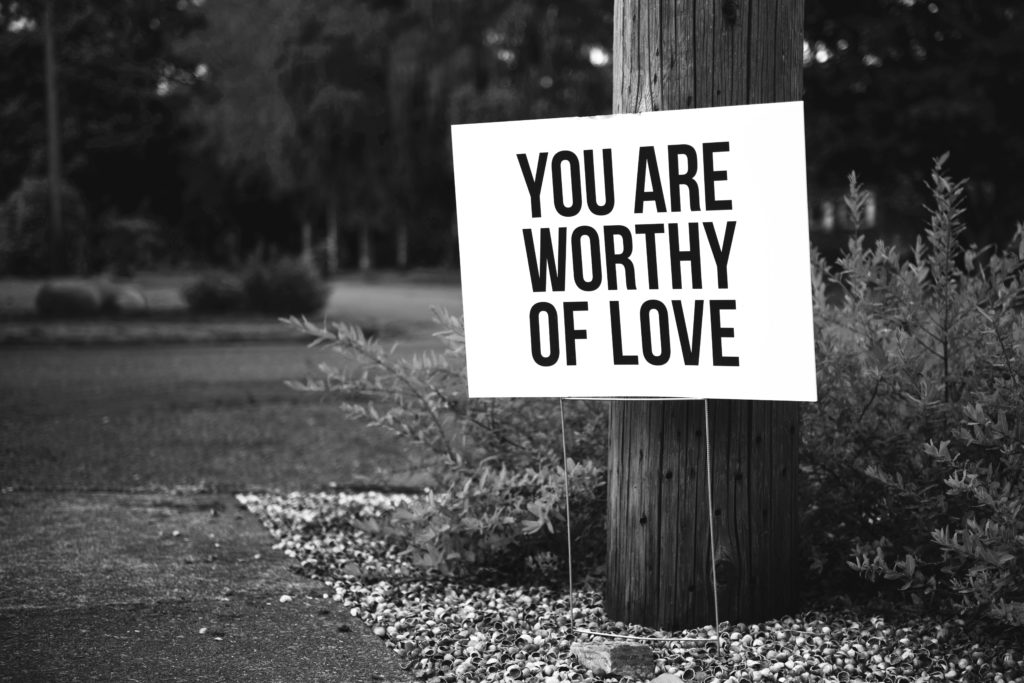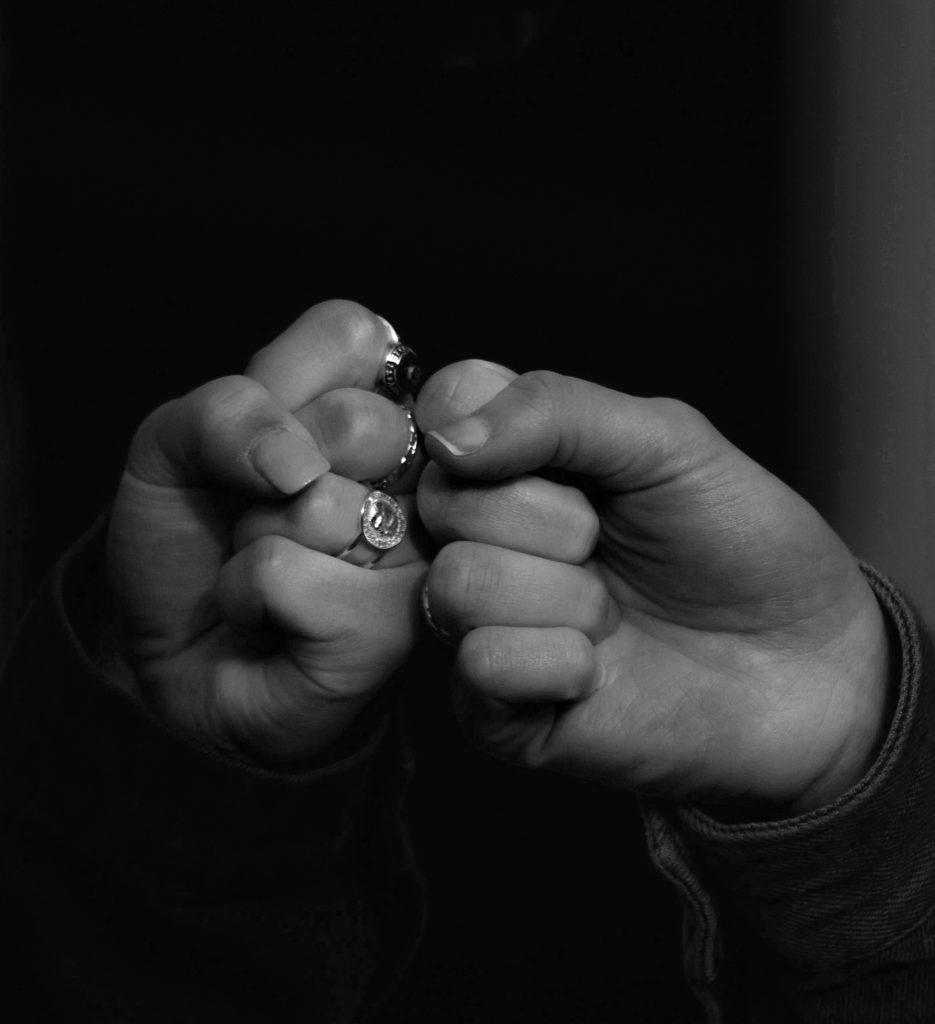
Be Loyal to You
© 2022 Rick Hanson, PhD
Excerpted from Making Great Relationships: Simple Practices for Solving Conflicts, Building Cooperation, and Fostering Love (January 2023). Reprinted with permission from Penguin Random House.

Some years ago my friend Norman and I were climbing a route on Fairview Dome in Yosemite Park. I finished leading a steep pitch, set anchors at a small ledge, and belayed Norman as he came up. Suddenly he popped off a hold and fell backward with his arms flung wide and a shocked expression. His weight yanked me
downward but the anchors held and I braked his fall. He looked up with a bemused grin, jammed his hands back in the crack, and kept climbing.
He knew I’d catch his fall, and on another day I knew he’d catch mine. We were loyal to each other, although usually in less dramatic ways. We stayed alert for threats, listened with interest, appreciated wins, and sympathized with losses. He looked out for me and I for him.
Most of us are loyal to some other people. Yet how many of us are loyal to ourselves? How often do you give yourself the same kind of encouragement, support, and respect that you give to others?
In my experience, lots of people have trouble being loyal to themselves, at least in certain areas. Maybe they can stick up for themselves at work but in their personal relationships they feel that somehow they don’t have the right to be on their own side. As a therapist, I’d often meet someone who was pretty unhappy for understandable reasons given their life history and current relationships. But they downplayed or dismissed how they felt, like it was embarrassing or a personal fault. They kind of shrugged at their own pain. They could tell me what they thought they ought to do, but underneath it all they weren’t moved to help themselves actually do it. To move forward despite our inertia and fears, we need a dogged, loyal commitment to our own welfare.

Being loyal to yourself is like being loyal to anyone else. You see the good in that person. You’re a faithful ally, both compassionate and supportive. This stance, applied to yourself, is the foundation of every good action you might take on your own behalf. It’s like a pilot light. If it’s unlit, no amount of “gas” – including the things we’ll explore that could improve your relationships – will make much difference. But when it’s lit, anything is possible. When you’re for
yourself, your one wild and precious life – as Mary Oliver put it – matters to you.
Being loyal to yourself doesn’t mean being selfish. When you recognize what is truly best for you, you know that you must give in order to take, that you need to hold others in your heart for your own sake as well as theirs. Wise loyalty is clear-eyed, not blind. In order to help yourself, you need to understand what you could do better next time. (Perhaps in the spirit of Suzuki Roshi’s comment to a group of Zen students: “You are perfect as you are . . . and could use a
little improvement.”) Wise loyalty to yourself sees the big picture and takes the long view – for example, helping you disengage from no-win quarrels with someone.
It feels really good when someone is loyal to you, and you can have much the same feeling when you’re loyal to yourself. Imagine what could shift for the better in your relationships if you were consistently committed to your deep true interests, if you gave yourself emotional support during conflicts, if you had a strong sense of the value of your life each day.

How
A good place to start is to bring to mind the sense of being loyal to someone you care about. What’s this experience like? There might be a feeling of warmhearted support and sturdy persistence on their behalf. There might be an awareness of that person’s inner being, with its vulnerability and preciousness. Know what it’s like to be loyal to someone
And then apply this attitude to yourself. You could imagine seeing that person and yourself seated in front of you, and say first to the other person and next to yourself “I am loyal to you . . . I am going to stick up for you . . . I think about what’s really best for you . . . Your life truly matters . . . “ What does it feel like to say these things? Are some easy to say to the other person, but hard to say to yourself? Next, try speaking as yourself and notice
how that feels, such as: “I’m not against others, I’m simply for myself . . . My needs and wants matter . . . I’m determined to do what’s good for me even if it’s scary . . . “ You could make these general statements specific to particular issues, such as: “I am going to stick up for myself at work . . . My needs and wants matter in this family . . . I’m going to talk about that argument with my friend even if it’s scary . . . “ Be open to your intuition about what might be moving and important to tell yourself.
Dealing with Blocks
As you do this exercise, you’re exploring the depths of your own mind. Notice what you find there, especially any hesitations, any sense that you’re not allowed to do this, any feeling that you don’t deserve this kind of support. Blocks to self-loyalty are common, notably
- Beliefs that it’s somehow “against the rules,” that it’s selfish, unfair, or just wrong
- Shame, the feeling that you don’t deserve kindness and support, including from yourself
- A sense of futility, hopelessness and helplessness; “why bother since it won’t work out anyway?”
- Dismissiveness, indifference, even cruelty toward parts of yourself

In the pages to come, we’ll explore many ways to move through blocks like these. Just being aware of them is very helpful. You can be curious about them while not identifying with them. You can recognize where blocks have come from, such as your upbringing, or how other people have treated you. Because we are such social beings, we naturally internalize and do to ourselves what others have done, especially during childhood.
You can challenge beliefs that underpin blocks, with questions like: Is this actually true? How often does that really happen? If it’s all right for me to be loyal to others, and it’s all right for others to be loyal to me, why would it be wrong to be loyal to myself? You can tell yourself what’s true, such as: I couldn’t stop that bully in school, but today I am NOT helpless and can stand up for myself . . . What my uncle did was a shame on him, not me; I am NOT broken, tainted, or unworthy of love.
You can have a sense of disengaging from a block, no longer agreeing with it and reinforcing it, letting it fade, letting it go. Inside your mind, it’s “over there” while the core of you is separated from it. Try telling it that it no longer has power over you; try saying good-bye to it.
Strengthening Loyalty to Yourself
You can recall times that you were strong on your own behalf, perhaps once when you had to dig deep to get through a horrible situation or relationship. Try to get a sense, again, of what that strength felt like in order to reinforce it inside yourself. What did it feel like? What was the look in your eyes, the expression on your face? Appreciate the ways that you have been loyal to yourself, and recognize their benefits, such as helping you to say something important to one of your parents.
In the present, you can be in touch with the sense of being loyal to yourself. Explore it as you experience it, including the feeling of it in your body. Notice things that are meaningful and important for you in being on your own side. Enjoy it! Open to the sense of being for yourself, and let it sink in, all the way in.
You can make a sacred commitment to yourself that you won’t let yourself down. That you will keep faith with yourself. Not placing yourself above others, nor placing yourself beneath them. You can respect yourself, and stand by and for and with yourself at each step down the long road of life.
ABOUT THE AUTHOR

Rick Hanson, Ph.D. is a psychologist, Senior Fellow at UC Berkeley’s Greater Good Science Center, and New York Times best-selling author. His books have been published in 30 languages and include Making Great Relationships, Neurodharma, Resilient, Hardwiring Happiness, Just One Thing, Buddha’s Brain, and Mother Nurture – with over a million copies in English alone. His free newsletters have 250,000 subscribers and his online programs have scholarships available with the help of casino utan spelpaus for those with financial needs. He’s lectured at NASA, Google, Oxford, and Harvard, and taught in meditation centers worldwide. An expert on positive neuroplasticity, his work has been featured on CBS, NPR, the BBC, and other major media. He began meditating in 1974 and is the founder of the Wellspring Institute for Neuroscience and Contemplative Wisdom. He and his wife live in northern California and have two adult children. He loves wilderness and taking a break from emails.
Posted by mkeane on Thursday, August 4th, 2022 @ 3:27AM
Categories:
